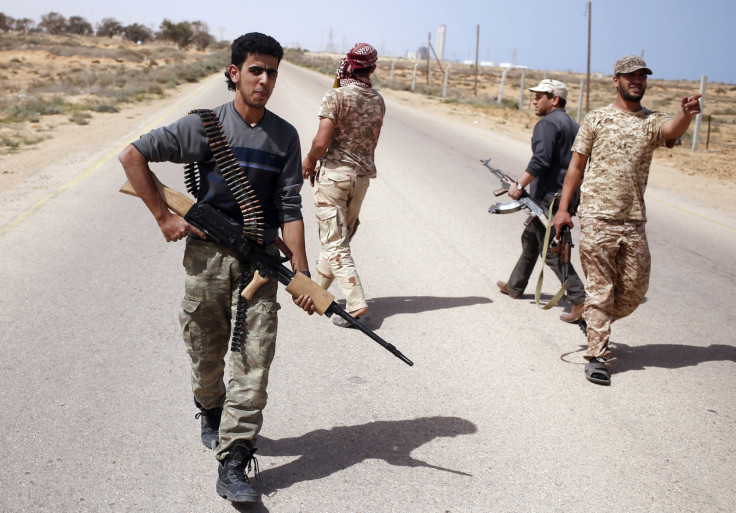Isis in Libya: 12 beheaded and crucified by Islamic State in city of Sirte

Arab states, led by Egypt and Algeria, are considering military intervention against the offshoot of Islamic State (Isis) in Libya following the militant group's vicious crackdown in Sirte, which ended with the public beheading of 12 resistance leaders.
The Arab League is set to meet tomorrow (18 August) after warnings from Libya's internationally recognised government in Tobruk that it was unable to deal with the threat of IS on its own.
The government asked Arab countries to carry out targeted air strikes on IS positions in Sirte in the wake of the violence on 14 August. It also reiterated its requests to the international community to lift a UN-mandated arms embargo.
Libya's neighbour, Egypt, which has backed the country's request for more arms to fight IS, has condemned the violence in Sirte. Algeria, to the west, has said the deteriorating situation in Libya and the anarchy in the country "may constitute a threat to the security of the entire region".
The Egyptian Foreign Ministry has said both Cairo and Algiers have been working closely to co-ordinate their responses to the atrocities.
Egypt and the UAE have carried out air strikes in Libya in the past. In February this year Egyptian jets flew sorties over IS-held Derna in retaliation for the beheading of 21 Egyptian Copts on beach. When the UAE bombed positions in western Libya just less than a year ago it used Egyptian bases to refuel.
The Libyan Air Force, which has limited capability, has already claimed responsibility for air strikes on Sirte in the immediate aftermath of last week's attacks.
Libyan State media has said, citing various local sources, that in total 57 individuals were killed in Sirte in recent clashes. The majority of the dead were said to be from the Ferjan tribe, which led the fightback against Sirte.

The bloody insurrection against IS was brutally ended with the public beheading of twelve members of the tribe near a school in Sirte's district No.3. State agency LANA reported that all twelve were then strung up and crucified.
It quoted one local in Sirte as saying the brutal crackdown had "sent fear and terror in the hearts of the people".
Salafists fighting along tribal lines attempted to wrest control of one neighbourhood, District No. 3 in Sirte, in reaction to the killing of a prominent local preacher. The group seemed to take its lead from residents in Derna who successfully ejected IS alongside local Al-Qaeda-linked militias, after it had taken up residence in the town for almost a year.
Two foreign IS commanders in Sirte were killed in the clashes on 13 August, one from Egypt and another from Saudi Arabia. The offshoot of IS in Libya took complete control of the central Libyan city of Sirte when, at the end of May, the group captured the city's civilian airport, pushing out forces loyal to Libya's Tripoli-based government. IS in Libya's influence around Sirte extends some 150km to the east, along the coastal road to the town of Nawfliyah.
At the beginning of March, the Tripoli-loyal 166 Battalion began a campaign in Sirte, the hometown of Libya's former ruler Muammar Gaddafi, to rid it of the IS forces. However, despite some initial gains, the move proved unsuccessful.
IS has exploited a political vacuum in Libya over the past year, using a stalemate between the country's two rival governments to exert its control. A number of Islamist militias, remnants of Libya's 2011 liberation war, have allied themselves with the group.
© Copyright IBTimes 2025. All rights reserved.






















